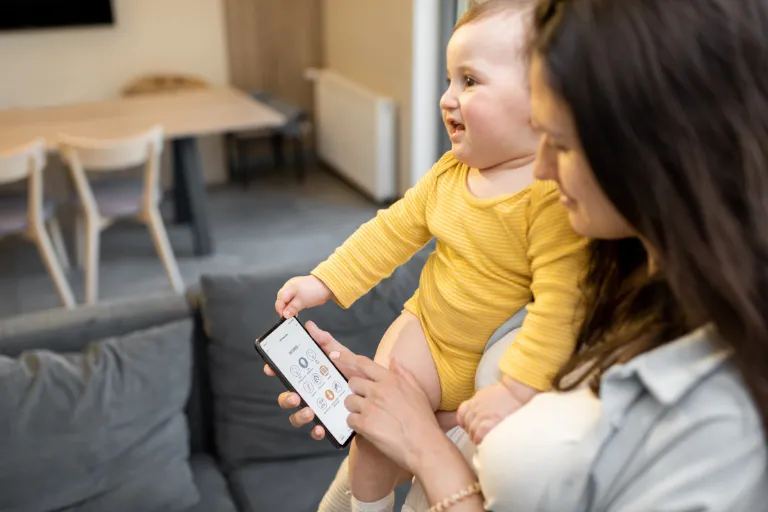Key Points
- Parenting apps now support everything from baby sleep logs to milestone tracking and family scheduling.
- These tools can ease mental load—but can also overwhelm parents with data and notifications.
- Understanding why parents turn to these apps can help families use technology more intentionally.
- Practical guidelines can make digital tools a helpful support system rather than a source of stress.
A New Era of Parenting: When Your Phone Becomes Part of the Family
By the time a new parent finishes breakfast, their phone may have already buzzed with sleep analysis summaries, feeding reminders, and daily development tips. Parenting apps—once simple timers for diaper changes—have evolved into full-featured platforms that promise to guide families through every milestone. As these tools become more sophisticated, many parents are beginning to ask: Is all this data helping… or adding to the pressure?
Why These Tools Matter in the Chaos of Modern Parenthood
Modern parenting comes with more information than ever before. With constant access to expert videos, development charts, and algorithm-generated suggestions, parents today face a level of mental load that previous generations never encountered. Parenting apps fill a real need by offering structure and reassurance during a phase that often feels unpredictable.
Yet the rise of digital tools also raises concerns. Some parents feel pressure to track every detail; others struggle with the feeling that if they’re not logging enough data, they’re “doing it wrong.” Studies suggest that digital tracking—while convenient—can shift parents’ focus from real-world cues to app-generated metrics, which sometimes increases anxious thoughts rather than reducing them.
Understanding this tension is key. Parenting apps aren’t inherently good or bad—they’re tools. And used thoughtfully, they can genuinely strengthen a family’s rhythm, confidence, and sense of connection.
The Trade-Offs: When Digital Support Helps—and When It Adds Pressure
Parenting apps often solve everyday pain points:
- Mental Load and Organisation – Parents juggle feeding schedules, nap windows, medical appointments, and developmental tasks. Apps can lighten that load by centralising everything in one place.
- Decision Fatigue – When every choice feels consequential—Is my baby sleeping enough? Is this behaviour normal?—Parents often turn to apps for quick guidance or reassurance.
- Over-Reliance on Data – However, the numbers can sometimes become the problem. Tracking every ounce of milk or minute of sleep may create pressure to meet “perfect” patterns that don’t reflect the natural variability of childhood. Some parents report increased anxious thoughts when apps display averages or “recommended” ranges.
- Notification Overload – The constant buzz of advice—milestone alerts, safety tips, reminders—can feel supportive or suffocating, depending on the parent’s needs that day.
What’s Happening Behind the Screen: The Science Shaping Digital Parenting
These apps feel essential to many modern parents for a few psychological reasons. The answer lies in the psychology of uncertainty and reassurance.
Parents Turn to Data When Life Feels Unpredictable
Research shows that parents, especially new ones, experience significantly heightened uncertainty during early caregiving. Digital tracking provides a sense of control—turning chaotic experiences into measurable patterns.
Cognitive Load and External Memory Systems
Apps function as an external memory system, reducing the need to mentally track schedules and patterns. Cognitive scientists refer to this as distributed cognition: offloading information so the mind can focus elsewhere.
Built-in Developmental Guidance
Many apps now incorporate guidance based on child development frameworks, pediatric milestones, and behavioural psychology. While these features can be beneficial, some tools present generalised milestones that don’t account for natural variability, which may unintentionally cause concern in parents whose children simply develop at their own pace.
Privacy and Ethical Considerations
Parenting apps often collect data on children who cannot consent—ranging from sleep habits to photos and biometric data. Research has raised concerns about how this data is stored, shared, and whether parents clearly understand those policies.
Using Parenting Apps Without Added Stress
- Choose Apps That Fit Your Parenting Style—Not the Trend Cycle
Some parents thrive with structured tracking, while others prefer minimal logging. Pick an app that complements your natural rhythm instead of reshaping it. - Beware of “Perfect” Scorecards
Select tools that offer ranges or patterns—not strict, idealised targets. Childhood rarely follows a neat curve. - Look for Patterns, Not Perfection
Tracking can reveal useful trends, but daily fluctuations are normal. Use data as a guide—not a judgment. - Read Privacy Policies (Yes, Really)
Choose apps that clearly explain:- What data do they collect
- Who they share it with
- How long do they store it
- Whether you can delete it
Transparency goes a long way toward building trust.
- Set Boundaries Around Use
If you find yourself checking the app more than observing your child’s cues, consider dialling back. Tech should support parental intuition, not replace it.
Taking the Next Step: Choosing Tools That Support—Not Replace—Your Instincts
Parents don’t need to abandon digital tools. What matters is whether an app genuinely makes daily life easier or quietly adds pressure. The most helpful tools are the ones that support organisation and reassurance without demanding constant attention. As you explore the parenting app landscape, take a moment to reflect on what would genuinely support your family—ease, clarity, reassurance, or simply a way to stay organised. The next step is choosing apps that match your needs, not the needs that notifications try to create.
Closing Thoughts: Finding Balance in a Tech-Heavy Parenting World
Parenting apps have transformed family life, offering a level of structure and support that many parents find invaluable. Yet like any technology, their impact depends on how we use them. By recognising both the benefits and limits of these tools, parents can choose apps that support confidence rather than undermine it.
With the right balance, parenting apps become not a distraction but a silent partner in the ongoing journey of raising a child.
Medical Disclaimer
This blog post aims to be informational and should not replace professional health advice. Always consult with a health professional for personalised advice.
Subscribe for Free for more insightful health articles tailored to your needs.
Sources
- Gal L, Bronstein J, Tali Gazit. Navigating parenthood in the digital landscape: a study on Facebook parenting community administrators. Journal of Documentation. 2025 Apr 4;81(3):638–56.
- Sutrisno FA, Diana D, Waluyo E. Fathers’ Involvement in Early Childhood Education: Navigating Parenting with Working Mothers in the Digital Age. AL-ISHLAH: Jurnal Pendidikan. 2025 May 22;17(2):2184–93.
- Virani A, Duffett-Leger L, Letourneau N. Parents’ use of mobile applications in the first year of parenthood: a narrative review of the literature. Health Technology. 2021 Jan;0.
- Sandua D. PARENTING IN THE DIGITAL AGE [Internet]. Google Books. 2023 [cited 2025 Dec 27]. Available from: https://books.google.com/books?hl=en&lr=&id=A2ndEAAAQBAJ&oi=fnd&pg=PA8&dq=Parenting+Apps:+Parenthood+in+the+Digital+Age&ots=9TzyDQV-lI&sig=OhqYVkasS0lmrYAXHWyAW1_Yz50
- Bäckström C, Carlén K, Larsson V, Mårtensson LB, Thorstensson S, Berglund M, et al. Expecting parents’ use of digital sources in preparation for parenthood in a digitalised society – a systematic review. DIGITAL HEALTH. 2022 Jan;8:205520762210903.



